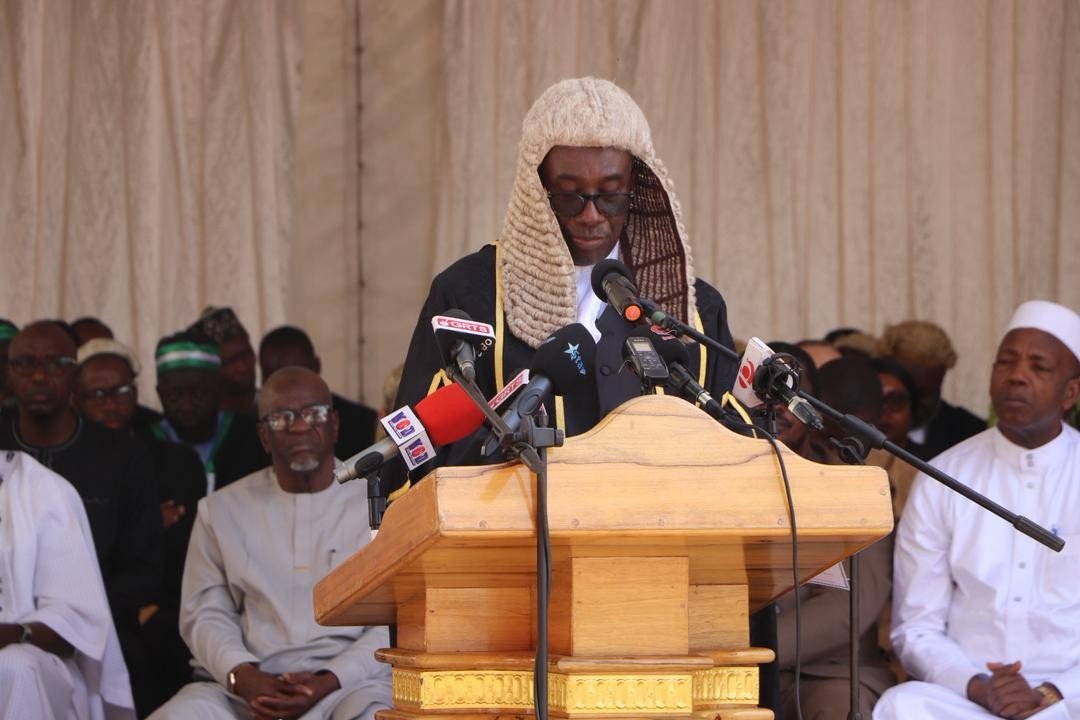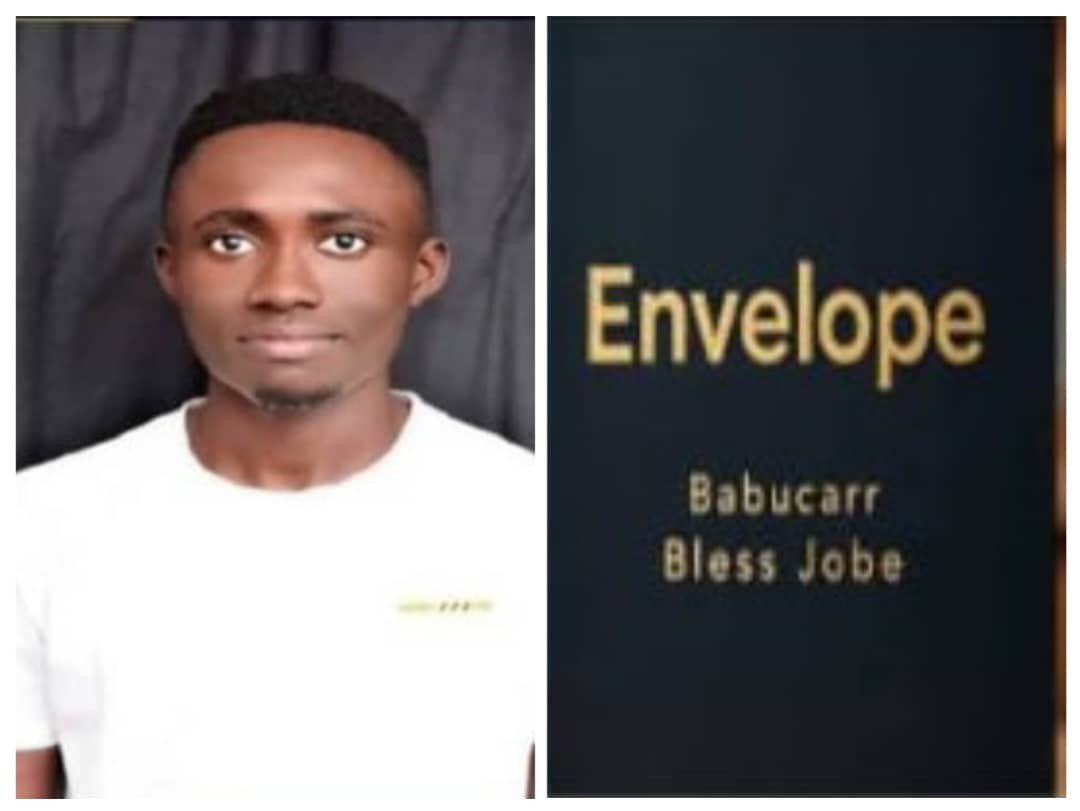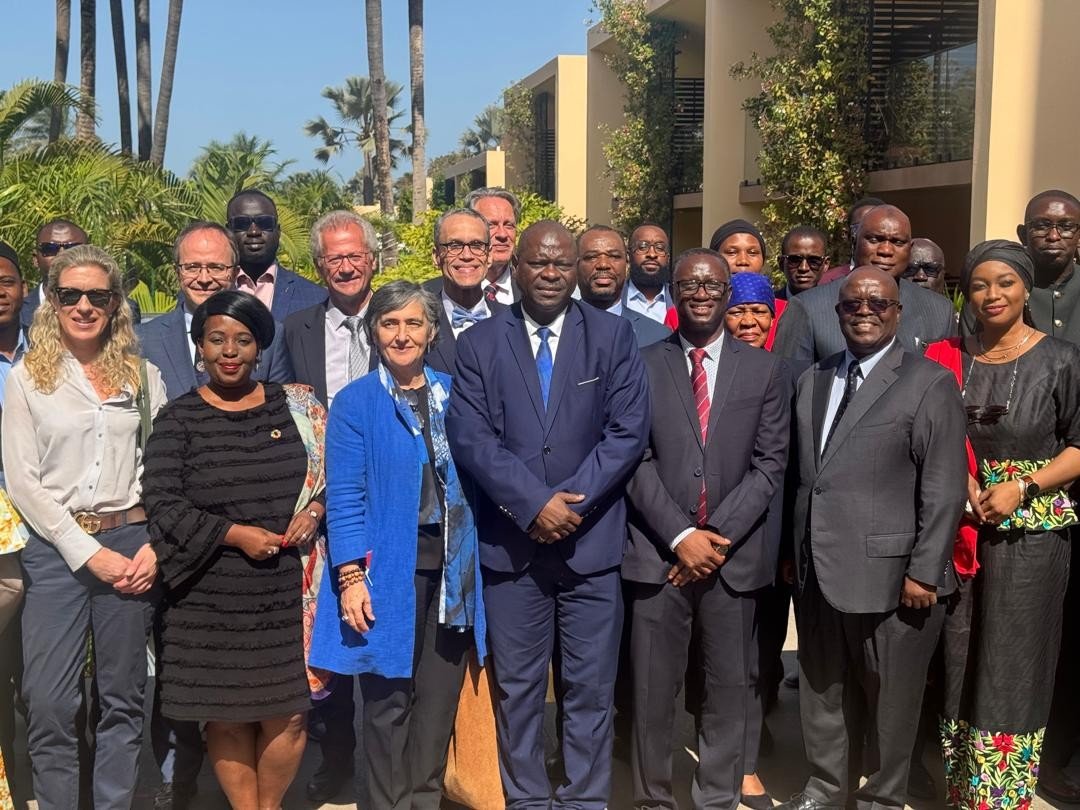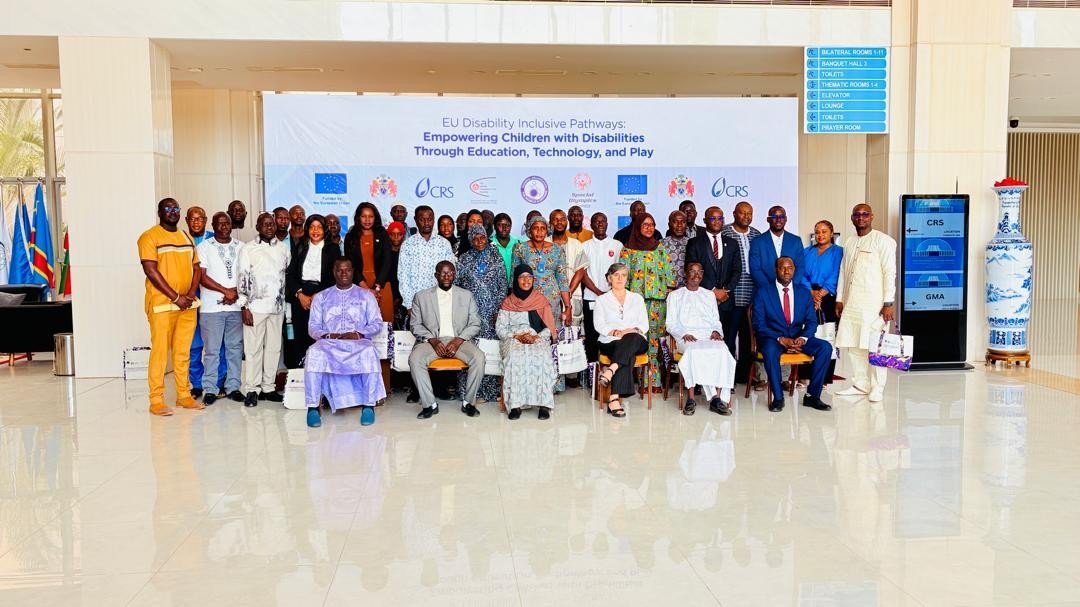The National Water and Electricity Company, the country’s utility provider, has raised alarm over the serious vandalism meted out on its Solar Plant in Jamburr on June 3rd, lamenting theft and deliberate vandalism of its assets are becoming serious trends.
Thirty-six cable sets, each consisting of 28 panels, were damaged by the perpetrators, affecting a total of 1,008 panels. The sabotage or theft caused a disruption, although it was brief due to NAWEC’s swift response to fix issues.
While there are other solar projects, the Jamburr Solar Plant is the first of its kind considering scale, electrical engineer Kebba A.K. Sanyang of NAWEC said.
At a press conference on Thursday, Sanna Touray, corporate service director, on behalf of the MD, stated that they wanted every Gambian to be aware of the impact of the incident on NAWEC as a public utility monopoly. He expressed the belief that this would help reinforce collective responsibility in preventing such incidents going forward.
“We all know this solar plant in Jamburr here is located in an isolated location, and it is becoming a target for criminals,” he explained. “On 3rd June 2025, we woke up with the news that the Jambur Solar Plan was deliberately targeted, tampered with, and the cables of a total of 36 solar panel sets were cut and disconnected. This resulted in a significant disruption to the plant’s operation. Therefore, we thought this incident as a whole has a devastating consequence on NAWEC’s operations and its ability to provide power to The Gambia as a whole.”
Mr Touray highlighted the high value nature of the cables, which makes them viable for sale by criminals, the accessibility of the solar plant due to the remoteness of its location and, generally, the upsurge in crimes, especially crimes related to cable theft, as causative factors.
The consequences are detrimentally multifaceted and far-reaching, he said. They range from power disruption, to reputational damage for NAWEC and The Gambia as a whole, financial loss due to disruption in supply, the need to repair damage, risk of electric fires due to the cutting of cables, and the safety hazards perpetrators themselves are exposed to (electrocution).
The corporate service director also highlighted structural damage as a consequence, saying: “When you cut the cable, as you are doing that process, you can cause significant structural damage as well to the panel and the plant as a whole.”
Mr Touray urged vigilance and collective responsibility in safeguarding not only the solar plant in Jamburr but also NAWEC assets as a whole.
“We should say no to this kind of thing so that it would not be repeated. That’s why we called the press conference for the whole country to know about what exactly happened, and then we can stand firmly together as a country and ward off this kind of attitude,” he said.
Edward Jatta, senior generation manager at NAWEC, describes the situation as a serious matter, saying this is something the country should “fight against”. He emphasised that it makes life difficult for not only the public utility company but also for everyone in The Gambia.
With regard to the perceived benefits perpetrators of these acts of vandalism seek to gain, he underscored that “whatever benefits come out of them, they are not equitable to the damage that are being caused. The benefits are very minimal.”
Aligning with Mr Touray, Mr Jatta also underscored coordinated vigilance and collective responsibility to ensure NAWEC properties are safeguarded. He extended this call to all Gambians and everyone residing in The Gambia.
In the same vein, Buba Badjie, communication officer at the public utility company, underscored that earlier that morning – on the very day of the press conference, they received report from some of their borehole sites about similar acts of devastation meted out on boreholes.
“One of our boreholes called SS5 along the Salagie Forest has been vandalised today, and a week ago borehole A12 was also vandalised. So it seems this is a trend, and NAWEC is the one paying the biggest price. We are the ones supplying electricity and water. As we speak today, the borehole vandalised is a borehole that supplies 90,000 litres per hour,” he said.
He also decried the adverse impact of such acts on water supply, since it often takes time and effort to ensure replacement and repair after materials are removed and taken away by perpetrators.
“These are things that are happening,” Mr Badjie highlighted, saying: “I think it is everybody’s business to make sure that NAWEC properties are safeguarded, because NAWEC is for all of us.”






